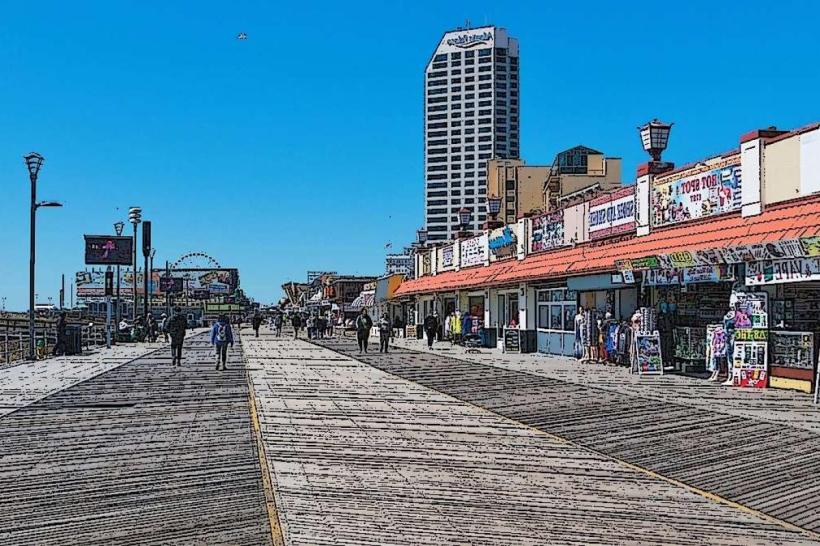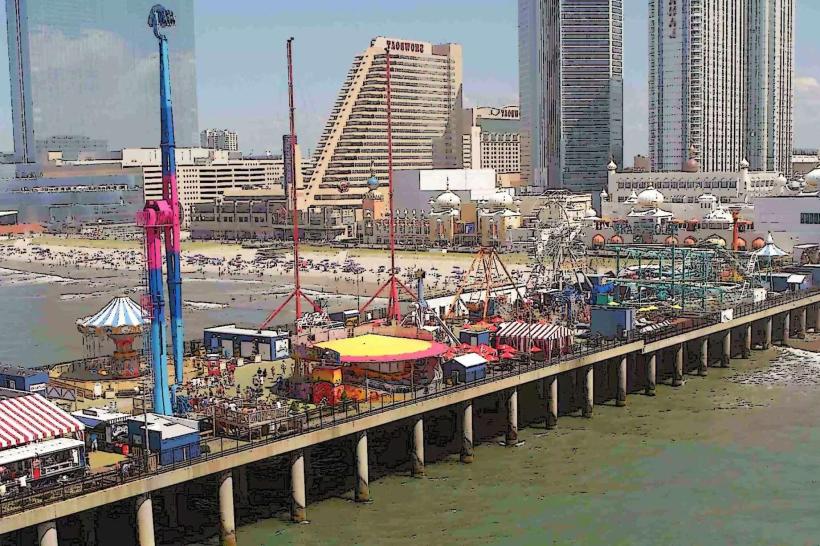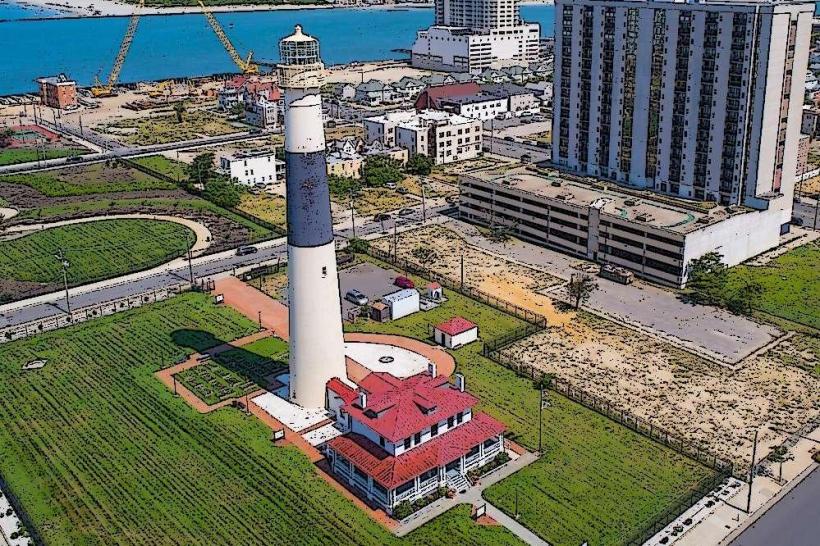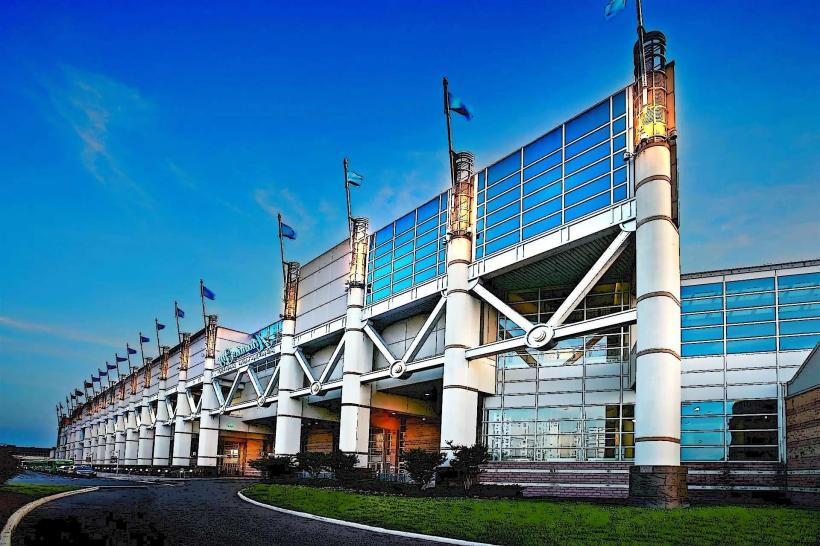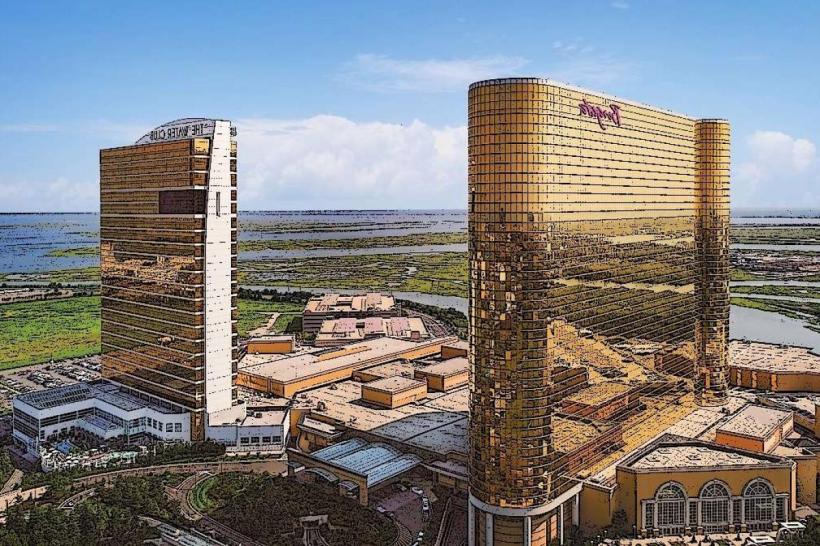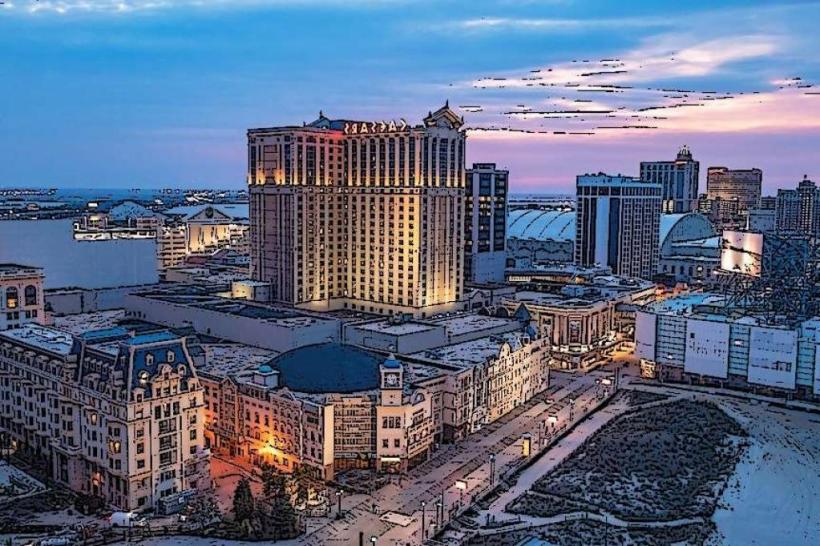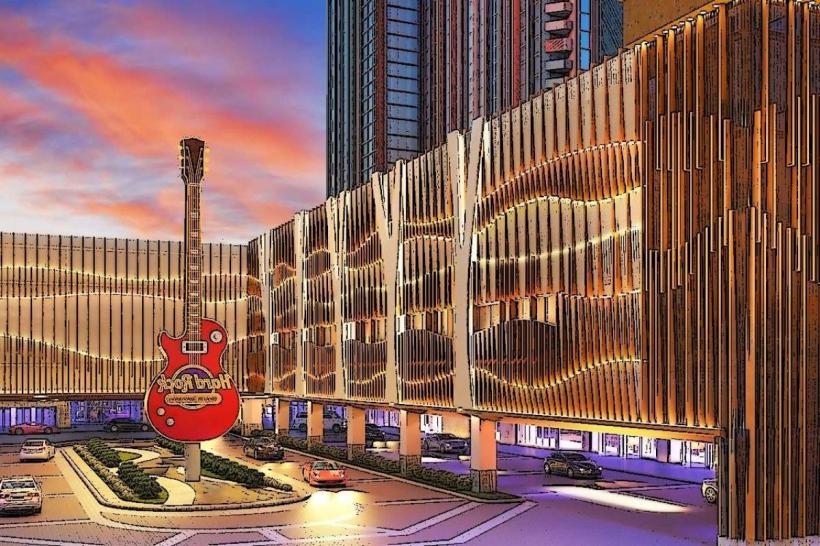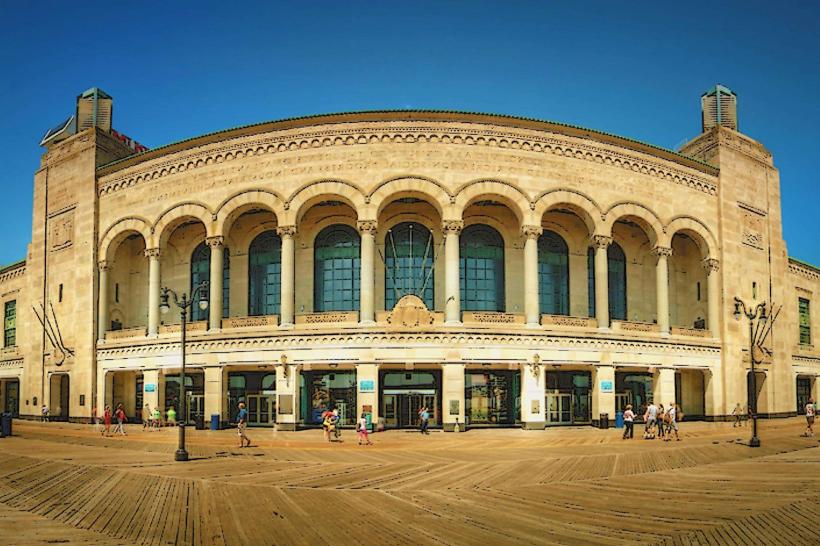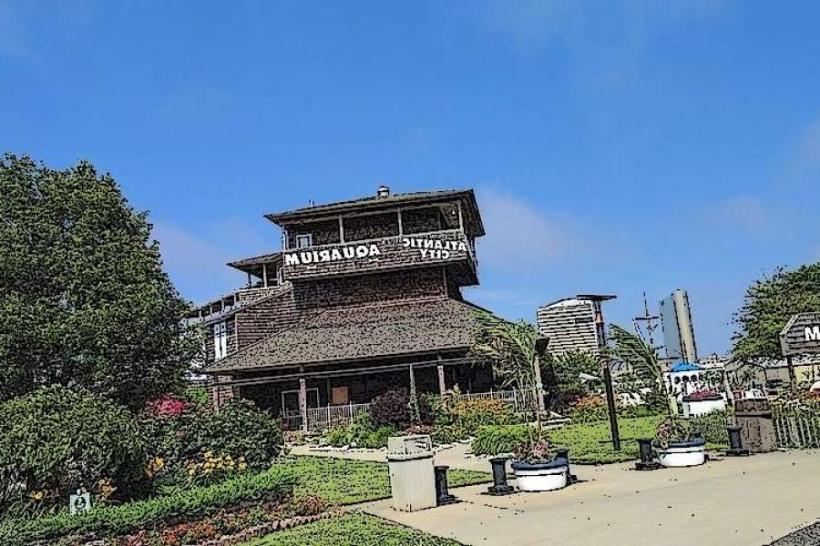Information
City: Atlantic CityCountry: USA New Jersey
Continent: North America
Atlantic City, USA New Jersey, North America
Atlantic City, located on Absecon Island along the southeastern coast of New Jersey, is a renowned resort city famous for its vibrant boardwalk, expansive beaches, and entertainment industry. Founded in the mid-19th century, Atlantic City rose to prominence as a premier vacation destination and continues to play a significant role in the state’s tourism and hospitality sectors.
Geography and Location
Atlantic City occupies a prime coastal position along the Atlantic Ocean, providing miles of sandy beaches that attract millions of visitors each year. The city is bordered by the Atlantic Ocean to the east and the Absecon Bay to the west, which contributes to its unique waterfront appeal. Its coastal geography shapes both its economy and lifestyle, with ocean views, beach activities, and a maritime atmosphere defining the city’s character.
History and Development
Atlantic City’s origins date back to the 1850s when it was developed as a health resort and seaside retreat for people from Philadelphia, New York, and other urban centers. The introduction of rail service in the late 19th century made the city more accessible, fueling its growth. The city’s iconic Boardwalk, constructed in 1870, was the first of its kind in the United States and quickly became a model for similar developments worldwide.
During the early 20th century, Atlantic City blossomed into a glamorous destination known for luxury hotels, entertainment, and beach culture. It was a hub for big band music, jazz, and later rock and roll, with the city hosting famous performers and serving as a vibrant nightlife center.
The Boardwalk and Attractions
Atlantic City’s Boardwalk is its signature landmark and one of the longest in the world, stretching approximately 5.5 miles along the oceanfront. The Boardwalk is lined with hotels, casinos, shops, restaurants, and amusement parks, creating a bustling entertainment corridor. It serves as the heart of the city’s tourism industry and offers visitors a classic seaside experience with arcades, rides, and street performances.
Key attractions along the Boardwalk include the historic Steel Pier amusement park, the Absecon Lighthouse (the tallest lighthouse in New Jersey), and the Atlantic City Aquarium. The Boardwalk also hosts festivals and events throughout the year, including concerts, marathons, and holiday celebrations.
Casinos and Entertainment Industry
Atlantic City is famously known as one of the few cities in the United States with legalized casino gambling. Since the legalization of casino gambling in 1976, the city transformed into a major gambling destination, often compared to Las Vegas. Several large casino resorts, such as Borgata, Caesars, Harrah’s, and Tropicana, dominate the cityscape and contribute significantly to the local economy through gaming, hospitality, and entertainment.
These casinos offer a wide array of gaming options, from slot machines and poker to table games, as well as world-class entertainment venues featuring concerts, comedy shows, and theatrical performances. The casino industry has created thousands of jobs and drives considerable tourism traffic to the city.
Tourism and Recreation
Beyond gambling and the Boardwalk, Atlantic City offers a variety of recreational opportunities. The city’s beaches are a major draw for sunbathers, swimmers, and water sports enthusiasts during the summer months. The city also has golf courses, marinas, and fishing charters for visitors seeking outdoor leisure activities.
Atlantic City’s Convention Center is one of the largest on the East Coast, hosting conventions, trade shows, and events that bring additional visitors and economic activity to the area. Shopping venues such as The Playground and Tanger Outlets attract retail tourists, while the city’s growing dining scene offers diverse culinary experiences from casual beachfront eateries to fine dining establishments.
Challenges and Revitalization Efforts
While Atlantic City has long been a popular tourist destination, it has faced economic challenges, including competition from other gambling hubs and broader shifts in the gaming industry. The city has experienced periods of economic downturn, population decline, and urban decay.
In response, ongoing revitalization efforts have focused on diversifying the city’s economy beyond gambling. Investments in non-gaming entertainment, waterfront redevelopment, new hotels, and cultural attractions aim to broaden Atlantic City’s appeal. Efforts to improve infrastructure, public safety, and community services are also part of a comprehensive strategy to enhance residents’ quality of life and support sustainable tourism growth.
Transportation and Accessibility
Atlantic City is well connected to the region by road and rail. The Atlantic City Expressway provides direct access from Philadelphia and other parts of New Jersey, facilitating weekend and day trips for tourists. The city is served by the Atlantic City Rail Line, offering commuter rail service to Philadelphia, which is a key transit link for visitors without cars.
Nearby Atlantic City International Airport supports limited commercial flights, as well as private and charter aviation, providing another transportation option.
Summary
Atlantic City is a historically significant, coastal resort city that blends classic beach culture with modern entertainment and gaming industries. Its iconic Boardwalk, casinos, and beaches form the core of its tourism appeal, while ongoing revitalization efforts seek to secure its future as a diverse and vibrant destination. Despite economic challenges, Atlantic City remains an important symbol of New Jersey’s coastal leisure and hospitality traditions.

